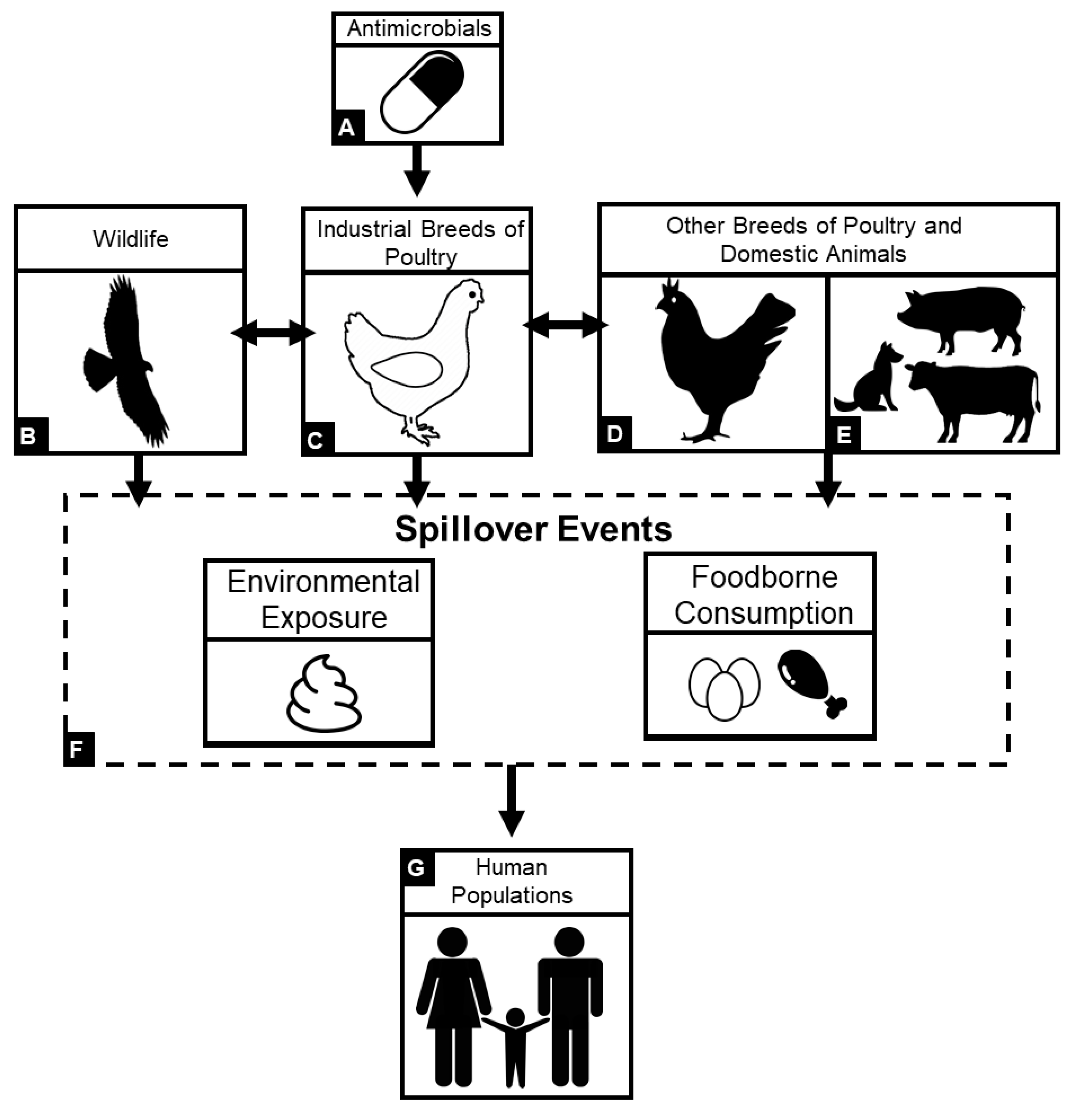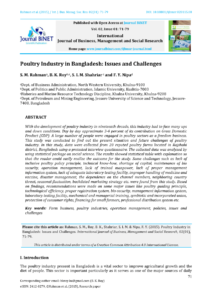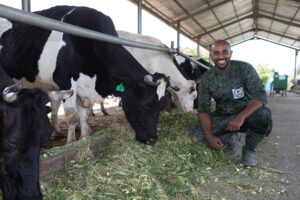Cattle farming is a vital part of Bangladesh’s economy. It provides meat, milk, and other products. Ensuring the health of cattle is crucial. Biosecurity is the key to achieving this.
What is Biosecurity?
Biosecurity means protecting animals from diseases. It includes measures to prevent the spread of germs. These measures keep cattle healthy and farms productive.

Credit: www.mdpi.com
Why is Biosecurity Important in Cattle Farming?
Biosecurity is crucial for several reasons. Let’s explore them below:
1. Prevents Disease Outbreaks
Disease outbreaks can be devastating. They can kill many animals quickly. Biosecurity measures help stop diseases from spreading. This keeps cattle healthy and alive.
2. Boosts Farm Productivity
Healthy cattle produce more milk and meat. They grow faster and stronger. This increases farm productivity. Biosecurity measures ensure cattle stay healthy and productive.
3. Protects Farmer’s Income
Disease outbreaks can cause huge losses. Farmers may lose their cattle and income. Biosecurity measures protect cattle and farmer’s income. Healthy cattle mean steady income for farmers.
4. Ensures Food Safety
Healthy cattle produce safe meat and milk. Biosecurity measures prevent diseases that can affect humans. This ensures the food we eat is safe.

Credit: www.veterinariadigital.com
Biosecurity Measures in Cattle Farming
Several biosecurity measures can be implemented on farms. Here are some important ones:
1. Quarantine New Animals
New animals can bring diseases to the farm. Quarantine new animals for a few weeks. This helps detect and treat any diseases before they spread.
2. Control Farm Access
Limit the number of people and vehicles entering the farm. This reduces the risk of bringing in diseases. Use disinfectants for vehicles and equipment.
3. Maintain Cleanliness
Keep the farm clean and tidy. Regularly clean and disinfect barns, feeding areas, and equipment. This helps reduce the spread of germs.
4. Provide Proper Nutrition
Healthy cattle are less likely to get sick. Provide balanced nutrition to boost their immune system. This helps them fight off diseases.
5. Vaccinate Cattle
Vaccinations protect cattle from common diseases. Follow a regular vaccination schedule. This helps keep cattle healthy and disease-free.
6. Monitor Animal Health
Regularly check cattle for signs of illness. Early detection helps in quick treatment. This prevents the spread of diseases.
Challenges in Implementing Biosecurity in Bangladesh
Implementing biosecurity measures can be challenging. Here are some common challenges faced by farmers in Bangladesh:
1. Lack Of Awareness
Many farmers are not aware of biosecurity measures. Educating farmers is crucial to implement biosecurity effectively.
2. Limited Resources
Small-scale farmers may lack resources. They may not afford proper biosecurity measures. Government support and subsidies can help.
3. Inadequate Veterinary Services
Access to veterinary services can be limited. This affects the implementation of biosecurity measures. Improving veterinary services is essential.
4. Cultural Practices
Traditional farming practices may not align with biosecurity measures. Changing these practices can be challenging. Education and training can help farmers adopt new practices.
The Role of Government and Organizations
The government and organizations play a crucial role in promoting biosecurity. Here are some ways they can help:
1. Education And Training
Provide education and training programs for farmers. Teach them about biosecurity measures and their importance.
2. Financial Support
Offer subsidies and financial support to small-scale farmers. This helps them implement biosecurity measures.
3. Improve Veterinary Services
Enhance access to veterinary services in rural areas. This ensures timely treatment and vaccination of cattle.
4. Promote Research
Encourage research on cattle diseases and biosecurity measures. This helps develop effective solutions for farmers.
Success Stories of Biosecurity in Bangladesh
Several farms in Bangladesh have successfully implemented biosecurity measures. Here are some success stories:
1. Farm A
Farm A implemented strict quarantine measures. They also improved farm cleanliness and provided proper nutrition. As a result, their cattle remained healthy and productive.
2. Farm B
Farm B focused on regular vaccinations and health monitoring. They also limited farm access to reduce disease risk. Their efforts paid off with increased productivity and income.
Frequently Asked Questions
What Is Biosecurity In Cattle Farming?
Biosecurity in cattle farming means protecting livestock from diseases and pests.
Why Is Biosecurity Important In Cattle Farming?
Biosecurity prevents disease outbreaks, ensuring healthy cattle and profitable farming.
How Does Biosecurity Benefit Cattle Farmers?
Biosecurity reduces disease risks, lowering veterinary costs and improving cattle health.
What Are The Key Biosecurity Measures?
Key measures include quarantine, vaccination, and sanitation practices.
Conclusion
Biosecurity is crucial for cattle farming in Bangladesh. It prevents disease outbreaks and boosts farm productivity. It also protects farmer’s income and ensures food safety.
Implementing biosecurity measures can be challenging. However, with the support of the government and organizations, it is possible. Education, financial support, and improved veterinary services are key.
By adopting biosecurity measures, farmers can ensure the health and productivity of their cattle. This benefits the entire community and the economy of Bangladesh.
Let’s work together to promote biosecurity in cattle farming. Healthy cattle mean a healthier and prosperous Bangladesh.







